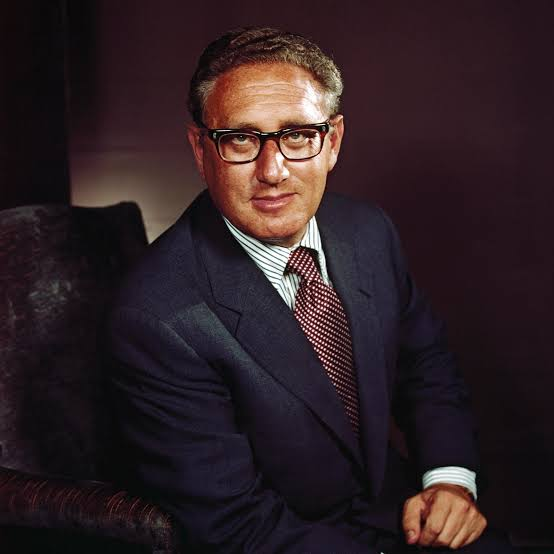
Henry Kissinger, 100, born May 27, 1923, kicked the bucket on 29 November, 2023.
Henry Kissinger was a German-born American diplomat, political scientist, and geopolitical consultant who played a key role in shaping U.S. foreign policy during the late 20th century.
Born German, but died American, Kissinger left Germany in 1930s with family.
Kissinger served as the National Security Advisor, the Secretary of State under Presidents Richard Nixon and Gerald Ford.
He played a central role in the diplomatic efforts related to the Vietnam War, including the negotiations that led to the Paris Peace Accords in 1973. Additionally, Kissinger was a key figure in the normalization of relations between the United States and the People's Republic of China.
In 1973, Henry Kissinger, along with Le Duc Tho, was awarded the Nobel Peace Prize for his efforts to negotiate a ceasefire and withdrawal of U.S. troops from Vietnam. However, the award was controversial, as the Vietnam War was ongoing when the prize was announced.
Kissinger's approach to diplomacy has been both praised and criticized. While some applaud his realpolitik strategy and geopolitical acumen, others have raised concerns about the ethical implications of his policies, particularly in relation to human rights issues in countries such as Chile and East Timor.
After leaving government service, Kissinger continued to be active in international affairs, serving as a consultant and authoring several books on diplomacy and global politics. He remains a significant figure in discussions about U.S. foreign policy and international relations.
Marital status:
Kissinger married two times in his life. First time, he married Ann Kissinger and second time, he married Nancy Kissinger. He has two children: David Kissinger, Elizabeth Kissinger
Kissinger married two times in his life. First time, he married Ann Kissinger and second time, he married Nancy Kissinger. He has two children: David Kissinger, Elizabeth Kissinger
 |
| 1st wife |
 |
| 2nd wife |
 |
| kids |
Follow for more....





.jpg)
No comments:
Post a Comment